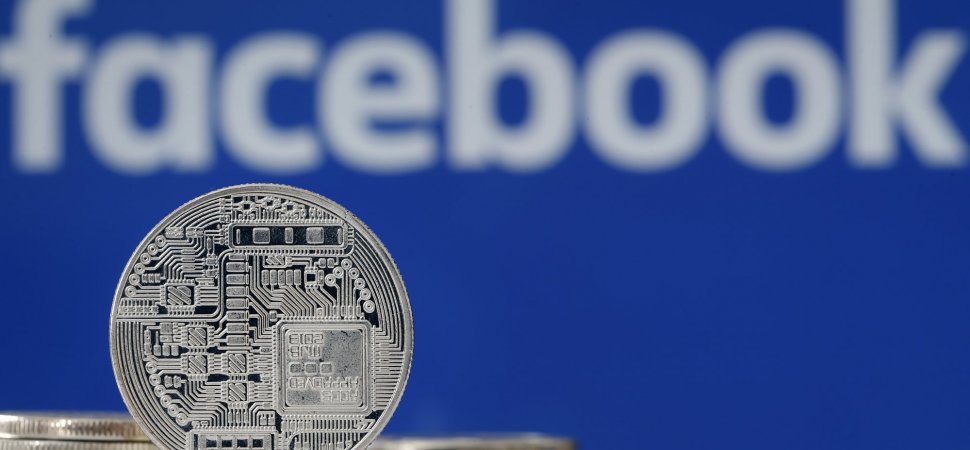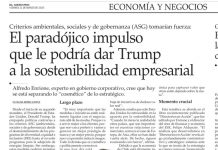Fuente: Cheddar – Autor: Carlo Versano y Tanaya Macheel
Facebook, buffeted by crises and scandals of its own making, announced one of the biggest expansions of its business footprint in its 15-year history Tuesday: the building blocks of a financial system that will be based on a digital token called Libra, which Facebook has been developing for months.
Deeply aware of its reputation on privacy, Facebook ($FB) is handing over management of the project to an independent, non-profit consortium based in Switzerland, which is currently comprised of more than two-dozen companies ー from tech stalwarts like Uber ($UBER) and Spotify ($SPOT) to payment and credit-card processors like Visa ($V) and MasterCard ($MA) ー that will be known as the Libra Association. Notably, no financial institutions signed on.
“I don’t think Libra’s launch will threaten bitcoin and ethereum, it’s more an attack on banks ー retail banks, central banks,” said crypto researcher Katherine Wu.
The plan is for the consortium to eventually include 100 companies, each of which will have no more than one percent control. Facebook is also opening a new subsidiary, a digital wallet called Calibra, in which users can store and spend their Libra currency.
Facebook was transparent in its announcement that it intends to monetize Calibra partly by sharing user data with third parties.
“This is the biggest global rollout of a cryptocurrency that we’ve seen,” said Rob Marvin, an editor for PC Magazine. “At its core, Facebook is releasing what could completely upend the global financial system.”
‘Could’ being the operative word.
“It’s a monumental day,” Wu said. “Facebook has immediate distribution and that’s its power. It has over two billion users so whatever they’re launching, whether it’s through Messenger or other products, it has a lot of users already … With Calibra you just need a Facebook account to sign up. That’s one thing that shouldn’t be overlooked: how easy it will be to onboard the next billion users, and this is a serious and legitimate avenue.”
Libra faces no shortage of challenges, from likely opposition on Wall Street to consumer concerns and confusion over blockchain technology, to scrutiny from regulators that Facebook is amassing too much power as it is. But regardless of the long-term success of the project, it represents perhaps the most important backing of the nascent crypto asset class by a large public company. Facebook is effectively providing an on-ramp to its billions of active users to have their first hands-on experience with cryptocurrency.
The price of bitcoin climbed above $9,000 for the first time in a year on anticipation of the Libra announcement, indicating the importance of a mainstream company with the size and scope of Facebook throwing its weight behind the evolving digital coin space. Coinbase, one of the biggest bitcoin services companies, is one of the backers of Libra.
Calibra, the digital wallet, is not yet available but will launch as part of Facebook-owned messaging services WhatsApp and Messenger, as well as its own standalone app. Wholly owned and operated by Facebook, Calibra is the company’s bet that it can become a payments provider for its billions of users. Images released by Facebook show the interface will allow people to view their available Libra and its equal value in their local currency.
WeChat, a Facebook competitor owned by Tencent in China, has had massive success developing its own mobile-payments system, which is seen by many as the holy grail of digital finance. Facebook’s messaging products, integrated with Calibra, will compete with that, though Libra is not pegged to any one government currency the way WeChat is. Instead, it will be backed by a basket of fiat currencies ー a move meant to keep its value stable relative to that of other cryptocurrencies like bitcoin, according to a white paper released by Facebook in connection with the announcement.
Facebook has said it hopes Libra will eventually offer a new option for the 1.7 billion “unbanked” people in the world, many of whom are in developing countries and forced to rely on a patchwork system of financial products to complete transactions as simple as sending money to family members, which often come with exorbitant fees.
“For many people around the world, even basic financial services are still out of reach,” Facebook said in a statement.
“That’s always been the promise of cryptocurrencies on a very basic level,” Marvin said.
Ver video HACIENDO CLICK AQUI












